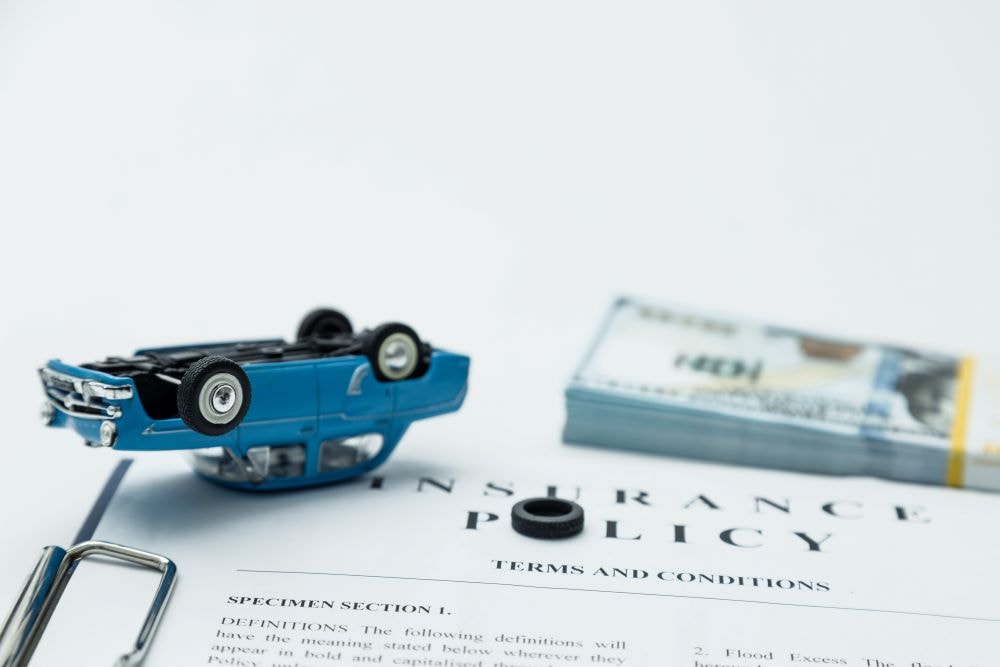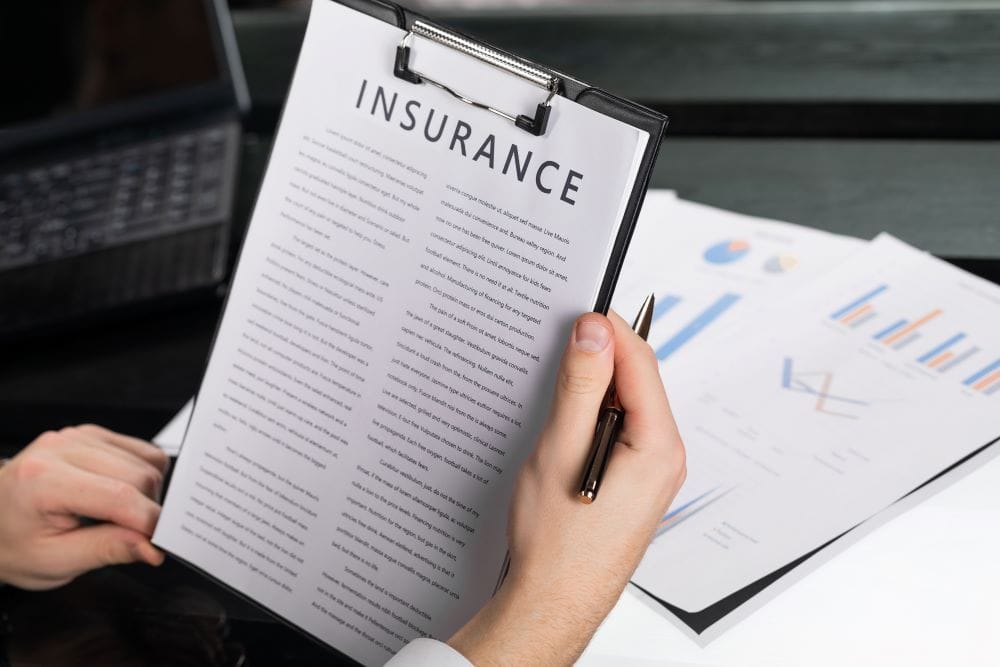
In the unfortunate event of a car accident, dealing with the aftermath can be overwhelming. From repairing the vehicle to navigating insurance claims, it’s a complex process. The last thing you want to wonder is “how to recover depreciation on an auto insurance claim.”
Why? Well, one crucial aspect that many car owners overlook is the depreciation of their vehicle’s value after an accident. Understanding how to recover depreciation on an auto insurance claim is vital to ensuring you receive fair compensation.
This comprehensive guide will explain what recoverable depreciation is, the types of diminished value, when to file a claim, and the steps involved in filing a depreciated value claim.
What Is Recoverable Depreciation?
Recoverable depreciation refers to the reduction in a vehicle’s market value after it has been damaged in an accident and subsequently repaired. Even if your car is perfectly restored, its accident history can still reduce its value. This loss in value is what you can potentially recover from an insurance claim.
Depreciation occurs because potential buyers perceive a previously damaged vehicle as less valuable, regardless of the quality of repairs. Now, you can easily find comprehensive auto accident damage guides, but you need to understand what the insurance policies really include.
Insurance policies often cover the cost of repairs, but many do not automatically include compensation for this depreciation.
Understanding an inherent diminished value claim is also another crucial par of the process. Similarly, comprehending your insurance policy and the specific terms regarding depreciation and diminished value is crucial.

Types of Diminished Value
Like homeowners’ insuranc,e any previous accident history can be a factor in the diminished value. When discussing diminished value, there are three primary types to consider:
Inherent Diminished Value:
This is the most common form of diminished value. It refers to the reduction in the vehicle’s market value solely due to its accident history, even after it has been repaired to its pre-accident condition. Buyers tend to offer less for a vehicle that has been involved in an accident, which impacts its resale value.
Repair-Related Diminished Value:
This type of diminished value occurs when the repairs themselves are subpar, using low-quality parts or not restoring the vehicle to its original condition.
In such cases, the diminished value is due to the quality of the repairs rather than the accident history alone.
Immediate Diminished Value:
This refers to the difference in a vehicle’s market value immediately before and after an accident, before any repairs are made.
This type is less commonly claimed but is important in understanding the full scope of a vehicle’s depreciation post-accident.

When Should I File a Depreciation or a Diminished Value Claim?
Filing a diminished value claim should be considered under several circumstances:
Accident Involvement:
If your vehicle was involved in an accident caused by another driver, you might be eligible to file a diminished value claim against the at-fault driver’s insurance company.
Severe Structural Damage:
If the accident caused significant structural damage to your vehicle, its market value would likely decrease, making a diminished value claim more viable.
Recent Repairs:
After having your vehicle repaired, if you notice that it is not restored to its pre-accident condition, you might have grounds for a repair-related diminished value claim.
Insurance Policy:
Review your own insurance policy to understand if it covers diminished value claims. Some policies do include coverage for depreciation, while others may not.
How Is Diminished Value Calculated?
Calculating the diminished value of your vehicle involves several factors, including:
Pre-Accident Value:
Determine the fair market value of your vehicle before the accident. Resources like the Kelley Blue Book can help you ascertain this value.
Post-Accident Value:
Assess the current value of your vehicle after repairs. This value can be influenced by the accident history and the quality of repairs.
Mileage Multiplier:
The mileage of your vehicle can affect its depreciation. Lower mileage vehicles may depreciate less compared to higher mileage ones.
Damage Multiplier:
The severity of the accident and the extent of repairs required also play a role in calculating diminished value. More severe damage typically leads to higher depreciation.
A common formula used to calculate diminished value is:
Diminished Value = Pre-Accident Value × Damage Multiplier × Mileage Multiplier

How to File a Depreciation or Diminished Value Claim
Filing a depreciation or diminished value claim involves several steps:
- Document the Damage: Immediately after the accident, take detailed photographs of the damage to your vehicle. These will be crucial in supporting your claim.
- Get an Appraisal: Hire a professional appraiser to evaluate your vehicle and provide an estimate of its diminished value. This appraisal will serve as strong evidence in your claim.
- Notify Your Insurance Company: Contact your insurance company or the at-fault driver’s insurance company to inform them of your intent to file a diminished value claim. Provide all necessary documentation, including the appraisal report and repair invoices.
- Submit a Demand Letter: Draft a demand letter outlining your claim for diminished value, including the calculated amount and supporting evidence. This letter should be sent to the insurance company.
- Negotiate: Be prepared to negotiate with the insurance company. They may initially offer a lower settlement than what you are claiming. Having a strong appraisal and thorough documentation will help in these negotiations.
- Legal Action: If the insurance company denies your claim or offers an unsatisfactory amount, you may need to seek legal counsel to pursue the claim further.

Who Can File a Diminished Value Claim?
Not everyone is eligible to file a diminished value claim. Typically, those who can file include:
- Owners of Repaired Vehicles: If your vehicle has been repaired after an accident, and you can demonstrate a loss in its market value, you may be eligible to file a claim.
- At-Fault Driver’s Insurance: If another driver was at fault for the accident, you could file a diminished value claim against their insurance company.
- Underinsured/Uninsured Driver Coverage: If the at-fault driver is uninsured or underinsured, your own insurance policy may cover diminished value claims if you have the appropriate coverage.

Common Challenges in Recovering Depreciation
Recovering depreciation on an auto insurance claim is not always straightforward. Here are some common challenges you may encounter:
- Insurance Company Resistance: Most insurance companies may resist paying out diminished value claims. They may argue that the repairs fully restored your vehicle’s value or that the depreciation is negligible.
- Proof of Depreciation: Providing solid evidence of your vehicle’s diminished value is crucial. This includes obtaining a professional appraisal and having comprehensive documentation of the vehicle’s condition before and after the accident.
- State Laws: Diminished value claims when you want to recover depreciation on an auto accident are subject to state laws. These laws can vary significantly. Some states may have more favorable laws for claimants, while others might not recognize diminished value claims at all.
- Time Frame: There is often a limited time frame within which you can file a diminished value claim. It’s important to act promptly after an accident to ensure your claim is considered.

How an Attorney Can Help You Recover Depreciation on an Auto Insurance Claim
Dealing with the complexities of recovering depreciation on an auto insurance claim can be challenging. While you may handle the process independently, enlisting the help of an experienced attorney can significantly increase your chances of a successful claim. Here’s how an attorney can assist you:
- Expert Legal Advice and Guidance: An attorney specializing in auto insurance claims provides expert legal advice and navigates the complexities of state laws and insurance policies, ensuring you understand your rights and options.
- Thorough Documentation and Evidence Collection: Attorneys efficiently gather and organize all necessary documentation, including accident reports, repair invoices, and professional appraisals, to support your diminished value claim.
- Accurate Calculation of Diminished Value: They ensure an accurate calculation of diminished value by considering factors like pre-accident value, damage extent, and repair quality, using expert insights to determine true depreciation.
What More They Can Help With
- Effective Negotiation with Insurance Companies: Attorneys skillfully negotiate with car insurance companies, presenting a compelling case to counteract common tactics used to minimize payouts and secure a fair settlement.
- Handling Denied or Lowball Claims: If your claim is denied or underpaid, an attorney can appeal the decision, provide additional evidence, and, if needed, pursue legal action to seek fair compensation through the courts.
- Maximizing Compensation: An attorney’s goal is to maximize your compensation by thoroughly reviewing your claim, identifying additional compensation opportunities, and leveraging their expertise to achieve the best outcome.
- Streamlining the Claim Process: They handle all administrative tasks and communication with the own insurance company, reducing your stress and allowing you to focus on recovering from the accident.

Final Thoughts
Recovering depreciation on an auto insurance claim requires understanding the types of diminished value, when to file a claim, and the detailed steps involved in the claim process. By being well-informed and prepared, you can increase your chances of receiving fair compensation for the loss in your vehicle’s value.
Secure Your Vehicle’s True Value with BLG
Always consult with a professional appraiser and consider legal advice if needed to handle the case. They can help navigate the complexities of diminished value claims effectively. This will help ensure you are adequately compensated for your vehicle’s depreciation after an accident.
Don’t let depreciation take away from the true value of your vehicle. At BLG, we specialize in helping you recover the full compensation you deserve. Our experienced car accident attorneys are ready to fight for your rights and ensure you get the best possible outcome from your diminished value claim.
Contact us today for a free consultation.





